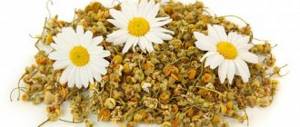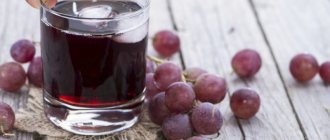The problem of constipation occurs in almost every second person. There are many reasons that influence the occurrence of this problem. This may be due to certain intestinal diseases, poor diet, and even lifestyle.
In principle, we can state the fact that the reasons due to which constipation occurs are not so terrible in themselves. Rather, the phenomenon of constipation itself represents a clear discomfort and inconvenience for the person suffering from it.
Constipation can lead to sleep disturbances, abdominal pain, and loss of appetite. All this leads to general weakness of the body . If constipation is not caused by various pathologies, then you can turn to solving the problem not with the help of doctors, but with the help of a laxative prepared at home.
Laxative recipes for children
Laxatives for children should have a mild effect so as not to spoil the children's intestinal microflora. A folk laxative for children is safer than laxative medications, which can cause complications and allergies.
Flax seed decoction
Infants can be given a microenema with a decoction of flaxseeds. This is a fast-acting folk laxative. It is necessary to carefully administer the enema without injuring the child. A decoction or tea of flax seeds can be given to children from three years of age.
Required:
- 3 grams of flaxseeds;
- 100 ml. boiling water
Cooking method:
- Pour boiling water over the seeds.
- Leave, stirring, for 15 minutes.
- Strain through cheesecloth or a sieve.
- We give the child 2 ml of decoction with unsweetened compote or water.
Dill water
Has a mild laxative effect. Prevents constipation, reduces colic.
Required:
- 15 grams of fragrant dill seeds;
- 300 ml. boiling water
Cooking method:
- Pour boiling water over the seeds.
- Leave for 20 minutes.
- Strain through cheesecloth.
- Give your child 20 ml throughout the day. dill water.
Prune compote
Natural laxative. Recommended for children from 6 months. For children over 3 years of age, this folk laxative can be consumed in its pure form, but not more than 5 prunes per day.
Required:
- 250 grams of prunes (you can add 50 grams of dried apricots, raisins, dried apples);
- 1 liter of boiling water;
- 60 grams of sugar.
Cooking method:
- Pour boiling water over the washed prunes.
- Infuse the berries for 3-5 minutes.
- Add sugar and stir.
- After boiling, cook for another 15 minutes (the berries should soften). Stir occasionally.
- Pass the cooled compote through cheesecloth and give it to the child. For a 6-month-old child, it is recommended to give no more than 250 ml. juice or compote per day.
Enemas
Fast-acting folk remedies include enemas with castor oil or sunflower oil. You will need 100 ml of water, heated to 37-38 degrees and 3 tbsp. any of the above oils.
The product is drawn into the bulb, they lie on their side, insert the tip of the syringe into the anus to a depth of 5 cm and slowly inject the liquid.
After complete emptying, the tip is removed without unclenching the syringe. Maintain a lying position until you need to go to the toilet.
It is necessary to do enemas only in extreme cases when urgent intestinal assistance is required. This is a fast-acting and relatively safe remedy, but with regular use it becomes addictive to the intestines.
Treatment of constipation with folk remedies can give a good, but short-term result. Home methods do not eliminate the causes that caused defecation problems. Therefore, if you have frequent and persistent constipation, you should undergo a medical examination to prescribe a treatment regimen.
The best laxative medicine is proper nutrition in combination with an active lifestyle and compliance with the drinking regime. If these methods do not help overcome constipation, the presence of internal pathologies should be suspected. In this case, the uncontrolled use of folk remedies that relieve constipation can cause a deterioration in health.
I like1I don't like
Traditional methods
Senna leaves
Decoction and infusion of senna is used as an effective laxative.
The laxative effect of senna leaves is known to many people. They are used as a delicate traditional medicine to cleanse the intestines. Senna is rich in substances that cause irritation of the intestinal walls and subsequently a laxative effect. The leaves of the plant significantly reduce appetite, so they are used by people who are overweight. Senna is available in tablet form and as a crushed herb for making infusions. Brew the herb like ordinary tea and drink 200 ml 3-4 times a day before meals.
You can prepare a laxative mixture from the following herbs: senna leaves, dill seeds, chamomile and valerian root. Mix all ingredients and take 1 tbsp. l. the resulting collection, pour 250 ml of boiling water, leave overnight. Drink half a glass of this remedy before bed. Cleansing hay will help normalize intestinal functions and cope with constipation.
Flax seeds
An infusion of flax seeds is widely known for its beneficial properties. At home it is prepared like this: take 1 tsp. flaxseeds, pour 250 ml of boiling water, leave for 4-5 hours. There is no need to strain the infusion; take it with the seeds before bed. Flax seeds can also be added to any dishes - soups, side dishes, pies. Their regular use will normalize the functioning of the digestive organs, prevent constipation, and remove all harmful decay products from the body.
Intestinal massage
It is recommended to do a massage for constipation yourself at home. To obtain a positive effect, massage is performed in the morning, immediately after waking up, on an empty stomach. The massage procedure is as follows: wet a towel, squeeze out excess water, wrap it around your hand and move it along the right side of the abdomen without pressing too hard. Massage the right side from top to bottom and vice versa (10-15 times). Move to the left side of your stomach and do the same. After self-massage, you need to walk around the room; soon the urge to defecate will appear. This folk method will relieve constipation and intestinal pain.
Castor oil
A laxative effect occurs from taking castor oil.
Taking castor oil is considered a good method of intestinal cleansing. Carry out the cleansing procedure immediately before bedtime. You should drink the oil warm at the rate of 1 g per 1 kg of net weight. Wash down the oil with pure lemon juice (100 ml). If you feel nausea and vomiting, doctors advise eating 1 tsp. raisins The laxative effect will occur a couple of hours after the start of the procedure.
Water and other methods
A glass of warm boiled water on an empty stomach will help restore the body's water balance, which will improve the functioning of the intestines and other abdominal organs. To obtain the same effect, it is recommended to use melt water (frozen in the freezer). Mineral water with the addition of 1 tbsp. l. xylitol will help quickly empty the intestines and restore beneficial microflora.
Other ways to cleanse your colon at home include:
- Olive or vegetable oil, drunk on an empty stomach in the amount of 1 tbsp. l., will help cleanse the body and restore the functioning of internal organs.
- Beets are a mild laxative for cleansing the intestines and a source of vitamins necessary for the body. To prepare a cleanser, you need to squeeze the juice out of the vegetable, dilute it with water 1:2 and drink throughout the day, adding a pinch of salt. Beetroot juice reduces appetite and is a good laxative. It is used by people who want to lose weight and cleanse clogged intestines of toxins.
Magnesium for cleansing the body
Chronic constipation can appear when the functional activity of the liver and gallbladder is impaired. Constipation, which is caused by stagnation of bile in the hepatobiliary tract, can be treated with magnesium sulfate. This remedy is used to cleanse the intestines and stimulate the flow of bile in adult patients.
Magnesium sulfate has no pronounced taste or smell, so it does not cause rejection or a gag reflex.
Magnesia can be used either as an oral remedy or as an enema solution for rapid onset of action.
Cleaning is carried out as follows:
- Before going to bed, prepare a solution (25 g of powdered magnesium sulfate per 2 liters of water);
- early in the morning, drink 250 ml of solution, lie on your left side and pull your legs to your chest.
The position is maintained for at least 30 minutes until the urge to defecate occurs. If the effect of the solution is not felt, continue taking it every hour (no more than 4 glasses).
What helps with constipation at home?
A simple laxative at home affects the body no less effectively than pharmaceutical drugs, but you don’t need to get carried away with it so as not to provoke atony. If a person cannot empty his bowels on his own for more than 3 days, urgent measures must be taken. All laxatives have a softening and irritating effect; they must be selected taking into account contraindications.
Freshly squeezed juice is known to help relieve constipation:
- apples;
- grapes;
- pumpkins;
- beets;
- tomato;
- pears;
- drain
Products for constipation
It is healthier for the body to take a natural laxative; not only products, but also mineral water are suitable. It needs to be warmed to body temperature, drink 1 glass three times a day. Plain water combined with exercise will also help:
- You need to drink 2 glasses of hot water in small sips.
- Then rotate your pelvis to the right and left 10 times, bend forward several times in different directions.
https://youtube.com/watch?v=oPw4NOOQeW8%250D
To prevent constipation from becoming chronic, doctors advise including laxative foods in the diet - vegetables, fruits, grains. They will also help if the problem of bowel movement worsens. You can use the following products:
- Bran.
They cleanse the intestines thanks to fiber; you should first take 1 teaspoon three times a day, gradually increasing the dose to 1 tbsp over 2 weeks. spoons. A portion of bran is brewed with boiling water for half an hour, the water is drained, and the steamed mixture is consumed. - Pumpkin.
Consume 50-100 g per day; you can grate it raw or bake it in pieces. - Prunes.
Eat 3-4 berries a day; both raw and boiled dried fruits remain effective.
Herbs for constipation
A reliable laxative at home is herbs; there are special mixtures that remove flatulence, cramps, and eliminate constipation. It is recommended to make infusions, they retain more beneficial substances
But it is important to consider that they give an effect only 3-5 hours after consumption
Senna requires special care; it should not be taken for more than 10 days, otherwise the intestines will forget how to work independently
When choosing herbal laxatives for constipation, it is important to know that some of them are addictive, so you need to take breaks. In this list:
- oregano;
- buckthorn;
- senna;
- thyme;
- Adonis;
- rhubarb;
- zhoster;
- clover.
There is also a safe herbal laxative prepared at home; such herbs can be drunk regularly for prevention:
- celandine;
- St. John's wort;
- linen;
- series.
Oils for constipation
Another well-known folk laxative is vegetable oil. In order for fats to retain their valuable properties, the product must be stored in a dark glass bottle. The most effective is castor oil, but sea buckthorn, flaxseed, and olive oil also help. These products soften stool and help it pass painlessly. An old recipe is a spoonful of oil for constipation on an empty stomach; increasing the dose is not recommended.
How to properly treat with oils:
- Linen.
Contains vitamins and polyunsaturated fatty acids, making the stomach walls stronger. You need to drink in the morning, half an hour before meals, 1 tbsp. spoon. - Olive.
Rich not only in fats and vitamins, but also in antioxidants that cope with infection. Take 1 tbsp. spoon for 30 minutes. Before breakfast, wash it down with warm water and lemon. - Castor.
Prescribed for intestinal motility disorders, it is based on castor beans, which contain acids to cleanse the walls of the mucous membrane. Take no more than 30 g per day. - Sea buckthorn oil.
Recommended for long-term constipation, when there is a risk of inflammation. Heals damage to the walls due to the passage of hard feces. Take 1 teaspoon in the morning as a medicine.
Features of physical treatment methods
In addition to internal remedies for constipation, which are easy to prepare and just as easy to use, the complex of home restoration of intestinal activity includes a number of exercises. Gentle physical activity helps relieve spasms that accompany retention of bowel movements and strengthens weakened intestinal walls.
A set of therapeutic exercises is performed 3-10 times a day, gradually increasing the load.
Exercise therapy includes the following classes:
- protrusion of the abdomen as you inhale and retraction as you exhale;
- bending forward, touching the opposite knee with the elbow;
- “bicycle” movement while sitting on a chair.
Regular exercise helps normalize intestinal tone. The absence of spastic phenomena facilitates the movement of feces through the intestines and prevents constipation.
Share with your friends
Do something useful, it won't take much time
Folk remedies
The effectiveness of alternative treatment is distinguished by its gentle effect on the body and at the same time numerous beneficial properties.
The most popular cleansing products:
- Honey. The drink is prepared from 1 tsp. per glass of boiled water. The honey solution is drunk on an empty stomach in the morning.
- Dill seeds. Brew 1 tbsp in 300 ml of water. l. plants. The decoction is infused for 60 minutes. The finished product is divided into 3-4 doses and taken before meals.
- Ginger. To prepare the drink, take 1 tsp. juice and a glass of water. Drink ginger solution 2-3 times daily.
- Aloe. Juice is squeezed out of 1 leaf of the plant, which requires cooling (in the refrigerator for 2 hours). Take the product throughout the day.
- Sagebrush. 1 tsp. herbs pour 1 liter of boiling water. Leave for an hour, strain. The drink is consumed 2 times a day.
Recipes:
1. Flour and sour cream.
The mixture normalizes fat metabolism, fights parasites, viruses, bacteria, removes toxic elements, and improves intestinal function. To prepare the product you will need 1 tsp. flaxseed flour (you can grind the seeds), 100 g of fermented milk product. Take dosage every day.
2. Lemon and castor oil.
For 1 kg of human weight, take 1 ml of castor oil and 2 times more citrus juice. The drink is mixed and drunk immediately. The product cleanses the body of parasites and feces. Colon cleansing at home involves taking folk remedies in the morning or before meals.
Types of medications and their effects
Immediate treatment of constipation is required when discomfort, dry dense stool, pain in the lower abdomen, or a feeling of fullness occur. Ignoring this problem can lead to complications. The effect of medications to facilitate bowel movements is based on the activation of peristalsis and softening of feces, which help the body cleanse itself of stagnant feces. The mechanism of action of drugs can be divided as follows:
- Irritation of intestinal receptors by chemical means . This irritation causes the nerve endings in the intestinal lining to contract, allowing stool to move forward and eventually be eliminated from the body. Effective chemical irritants include synthetic drugs, such as phenolphthalein and castor oil, as well as herbal preparations - joster fruit, buckthorn bark, rhubarb root, senna leaves.
- Stool softeners . Such products have a beneficial effect on the passage of feces. Various oils: petroleum jelly, olive, almond help facilitate the easy passage of stool through the colon.
- Mechanical irritation . With mechanical action, feces increase in volume and become thinner, and this contributes to irritation of the intestines. Agar-agar, Epsom salts (Magnesium sulfate), Duphalac can cause such irritation.
It is worth noting that it is better not to prescribe medications to yourself without consulting a doctor, and you should also not regularly resort to medications, since frequent use of laxatives can lead to addiction in the body, and in the future may cause the body to not respond to such irritants and the so-called lazy bowel syndrome .
Types of laxatives
Based on the principle of action, laxative medications are divided into the following groups.
Medications for mitigation
They are used to cleanse the small intestine and are capable of dissolving fecal matter. The composition contains vaseline and almond oils, liquid paraffin and other substances. Prescribed for the purpose of prevention for persistent constipation, patients who have survived surgery, heart failure, women in the postpartum period, hemorrhoids, microtrauma of the anus.
Drugs that increase colon contents
Penetrating into the human body, the active components increase in volume and promote emptying. The medicines are based on fiber and pectin, which successfully bind toxins and waste products used for intoxication and constipation. These same substances are found in some fruits, vegetables, bran, and flax.
Contact laxatives
The substances included in the composition activate rectal peristalsis due to the interaction of the active substances with the mucous membranes of intestinal cells. These medicines contain castor oil, rhubarb, buckthorn, sodium picosulfate, phenolphthalein.
Enemas
Colon cleansers used as microenemas have the ability to dissolve in the blood, bypassing the stomach, and are often prescribed by doctors. Most often, the volume of such enemas is no more than 100 ml.
Osmotic medications
They increase the osmotic pressure in the intestinal system, stopping the dissolution of the liquid, which is why the fecal matter swells. Karlovy Vary salt, lactulose, sodium sulfate, having a mild effect, are not addictive, help cleanse all parts of the system, starting the natural process of emptying.
Other
Prucalopride and tegaserod are used for irritable bowel disease, as well as when other cleansing methods are ineffective.
Self-prescription of medications is unacceptable: only a doctor will help you figure out which remedy is best for a particular patient.
What pharmaceutical products will help?
Experts divide medications that help solve the problem of difficult bowel movements according to their principle of action into:
- Stimulators of intestinal motility, acting on the principle of preventing the formation of solid components of feces (Bisacodyl, Guttalax, Sodium picosulfate). Medicines are characterized by difficult to predict and uncontrollable effects, which limits their use for pregnant women, the elderly and children;
- Means that work on the principle of increasing osmotic pressure in the intestines, accumulating waste products, softening them as a result of pressure on intestinal motility and excretion. Medicines of this type include saline laxatives such as Duphalac, Normaze, Lactusan, Macrogol;
- Drugs with a combined principle of action are represented by Kafiol, Guttalax, Regulax, Angiolas.
Be sure to read:
TOP 5 exercises and recipes: How to quickly get rid of wrinkles around the eyes at any age
Making laxatives at home
There are many recipes for laxatives that can be made at home. There is nothing difficult about it. The only difficulty is the correct laxative recipe. The most famous and common recipes are the following:
- Vegetable juice made by mixing spinach and beet juices. The proportions are one to one. The resulting mixture must be diluted with water to create an acceptable consistency.
- A decoction of medicinal herbs. If you experience occasional constipation, then you should resort to this recipe. You should make a decoction of the following ingredients: a mixture of chamomile, marshmallow root, fennel fruit, licorice. The components are taken in equal quantities. The mixture is brewed with boiling water and consumed at night.
- If constipation is regular, then you should use a stronger decoction, which can be prepared from calamus, tansy, valerian root and St. John's wort. The decoction is consumed before meals.
- Aloe juice treats chronic constipation. This juice should be drunk in a small spoon for two or four weeks. Consumed before meals.
- Also useful for constipation is a product such as fresh cabbage juice, which is diluted with water. Used twice a day. In principle, cabbage juice can be replaced with cucumber brine, sauerkraut brine, and juice from raw potatoes.
- Oddly enough, a product that can act as a laxative is honey. To take advantage of its laxative properties, dissolve a small spoon of honey in a mug of warm water and then drink it.
Answers to popular questions
| Question | Answer |
| How does constipation affect the human body, can it increase weight and by how much? | Constipation disrupts the digestive process. However, it does not lead to excess weight, although at first glance it may seem so. But after excretion of feces, the weight will return to its usual level. |
| Is it possible to drink activated carbon? | Activated charcoal is considered an effective remedy for constipation; even experts recommend it. This is a good sorbent that helps restore stool. |
| In what area does the stomach hurt during constipation? | Discomfort is observed in the lower part of the abdominal cavity. |
| If constipation lasts 4 days, what should I do, which doctor should I contact? | If home treatments do not help, you need to consult a doctor. Since the problem is associated with weakened functioning of the gastrointestinal tract, you should contact a gastroenterologist. |
Stool retention in adults is a fairly common problem today. It is often associated with poor nutrition and consumption of foods that bind. You can get rid of even severe constipation at home using traditional medicine recipes and medications.
It's time to cleanse your intestines
First, let's find out why pollution occurs. It depends primarily on nutrition. Snacks on the run, foods with strange additives, and a small dose of fiber cause us great harm. Junk food, once in the stomach, is poorly digested, but rots well, poisoning the body.
How do you know if your colon needs a cleanse? There are several signs by which one can judge the degree of contamination of the body.
- Deterioration in health.
- Decline in performance.
- Frequent colds due to decreased immunity.
- Frequent bloating, flatulence, diarrhea alternating with constipation.
- Rashes on the face.
- The skin loses its natural color, acquiring a gray tint.
- Excess weight.
- Thick coating on the tongue.
- Unpleasant body odor even with careful hygiene.
In order not to harm the body, you should consult a doctor and then start cleaning. This procedure cannot be carried out if you have diseases such as:
- Tumors in the pelvic organs.
- Exacerbation of hemorrhoids.
- Exacerbation of gastrointestinal diseases.
- Diverticulitis, Crohn's disease and others.
With caution in case of hypertension, diabetes mellitus, heart disease
general characteristics
The final stage of the digestive process is defecation, through which the body gets rid of waste and toxins. Many people experience constipation (obstipation, constipation), which makes it difficult to remove digested food debris. Compaction of stool occurs in the following cases:
- insufficient fluid intake;
- sedentary lifestyle;
- pregnancy;
- intestinal atony.
The most common cause of constipation is poor nutrition, in which the diet does not contain enough coarse dietary fiber.
The frequency of bowel movements depends on metabolism - the norm of stool with a slow metabolism is up to 4 times a week, and with a fast metabolism up to 12 times.
Constipation can be distinguished from other digestive problems by its characteristic symptoms. Defecation masses become dry and lumpy, the volume of excreted excrement decreases, and their color and structure change. After defecation, there is no feeling of complete emptying, and to separate feces you have to strain harder than for normal daily stool.
Bran for colon cleansing
Cleansing the intestines with bran is a method that has also proven itself on the positive side. It has long been used by representatives of traditional medicine. To cleanse with bran, you need to eat it before eating in the amount of 2 tablespoons, that is, during the day - 6 tbsp. l bran. This amount will be enough.
Due to the fact that bran is a grain shell, it is rich in fiber and therefore cannot be digested by the human body. Getting into the stomach, and subsequently into the intestines, they absorb and remove from the intestines all the decay products that have accumulated there. And given that they can increase the movement of bile, it is recommended to take them before cleansing the liver.
When taking bran, you must remember that water consumption must be mandatory and such purification should be carried out throughout the month.
When and how should a laxative be used?
Constipation can cause toxicity in the body
Think about the fact that you are constipated when more than two days have passed between bowel movements. The process itself is uncomfortable. If the picture repeats itself over several months, then we are talking about chronic constipation.
Causes of constipation:
- violation of diet;
- drinking small amounts of liquid;
- dysbacteriosis;
- drug exposure;
- diseases of the endocrine system;
- haemorrhoids;
- injuries to the coccyx, intestines;
- stressful situations;
- physical inactivity;
- long trips.
This is not the entire list of causes of constipation. If you regularly experience problems with bowel cleansing, you should seek advice from a specialist, because laxatives alleviate the condition, but do not treat the cause.
Laxatives must be used in conjunction with changes in diet and lifestyle.
Each laxative has its own specific effect on the human body, which is why they are used differently.
There are quick-acting remedies, for example, prunes with yogurt. Milder formulations are best used before bedtime. Consuming castor oil gives effect within 5-6 hours.
Before starting to take a laxative, even one based on natural ingredients, you should look at the contraindications. A doctor’s recommendation will make it possible to alleviate the condition without causing harm.
Negative consequences
Stimulation of the intestinal system can lead to poor absorption of nutrients entering the body with food. Some types of laxatives have a negative effect on the heart and blood vessels, and in women, on the uterus.
The systematic use of special means for emptying can provoke addiction.
If cleansing procedures are abused, diarrhea may occur. In addition, patients may experience pain in the abdominal area, water-salt imbalance, and lack of organ peristalsis. Sometimes the drugs provoke a change in the color of urine, deterioration of the digestion process, skin rashes, and tachycardia.
Herbs with laxative effects
Contains dietary fiber and biologically active components. Anthraglycosides and essential oils reduce inflammation of the gastrointestinal mucosa, dilute stool and remove it, cleansing the intestines and eliminating spasms.
Buckthorn bark
Contains inactive anthraglycosides (8%). Therefore, the laxative effect occurs 8 hours after taking the decoction. Not suitable for frequent use as it is addictive.
- Pour 20 grams of bark into 250 ml. boiling water
- Let the broth brew for 25 minutes and cool.
- Drink 125 ml before bed. decoction
Zhoster
In terms of laxative effect and glycoside content, it does not differ from buckthorn bark. It has an antibacterial effect, as it contains 3% ascorbic acid.
- Pour a tablespoon of fruit into a liter jar.
- Pour in 250 ml. boiling water
- Leave the broth for two hours, then pass through cheesecloth.
One tablespoon of joster decoction will help relieve constipation. Use 3 times a day.
Rhubarb root
Contains tanoglycosides (8.7%) and anthraglycosides (4.5%). The former have astringent properties and help against diarrhea. The latter, on the contrary, are responsible for “awakening” the intestines and help cope with constipation. To combat constipation, brew rhubarb root.
- Pour two tablespoons of chopped root into 500 ml. boiling water
- Leave for an hour.
- Drink 250 ml. decoction twice a day.
Has no contraindications for pregnant women.
Toadflax
Contains active glycosides, so the laxative effect occurs within the first two hours after use. “Atlas of Medicinal Plants of the USSR” Tsitsin confirms that the herb helps cope with acute constipation. Has a strong choleretic effect. Use is contraindicated for pregnant women. For diseases of the liver, kidneys and gall bladder, use as recommended by a doctor.
- Pour a teaspoon of flax seed into a glass of boiling water. Leave for 12 hours in a thermos mug.
- Drink the entire infusion before bed along with the seeds.
Cannot be used for long-term use.
Laxative herbs, laxative herbal mixtures and preparations containing laxative herbs are recommended to be used after consultation with a doctor.
Collection of laxative herbs:
- Licorice root (powder). Stir one teaspoon of powder in warm boiled water and drink.
- A collection of buckthorn bark, licorice, fennel and anise. Prepare a decoction. Drink 60 ml. decoction twice a day.
- A collection of licorice, buckthorn bark, joster and fennel. Prepare a decoction and drink 250 ml. in a day.
- A collection of peppermint, chamomile, buckthorn bark, anise and fennel. Prepare a decoction. Drink 125 ml. decoction twice a day.
Effective decoctions and infusions
The most effective folk remedies against constipation in adults include decoctions based on senna leaves and buckthorn bark. However, these laxatives have a number of contraindications:
- intestinal obstruction;
- inflammatory gastrointestinal pathologies;
- stomach and intestinal bleeding;
- strangulated hernia;
- peritonitis;
- cystitis;
- spastic constipation;
- pregnancy;
- children under 18 years of age.
In the absence of contraindications, herbal remedies are used in the complex treatment of chronic constipation caused by sluggish peristalsis.
Method for preparing senna decoction for colon cleansing:
2 tbsp. l. pour a glass of boiling water over the herbs and leave for half an hour. Take half a glass of the decoction before bed so that you have stool in the morning. The course of treatment is 2-3 weeks.
A laxative infusion from buckthorn bark is prepared using a similar recipe. The application scheme remains the same.
Decoctions of buckthorn bark and senna leaves are not recommended to be drunk for a long period due to possible intestinal addiction.
The benefits and harms of colon cleansing
There are two conditional groups of cleansing procedures:
- Oral – this group includes the use of laxative medications, adsorbents, freshly squeezed juices and a special diet.
- Through the anus - a colon hydrotherapy procedure in a clinic, or using an Esmarch mug at home.
Carrying out any type of cleansing procedure brings healing to the body, but there are also some side effects.
| The benefits of cleansing procedures | Harm from the use of cleansing procedures |
| 1. Effective in the treatment of chronic constipation and intestinal blockages. 2. Freeing the intestines from harmful substances, rotting products, and parasites. 3. Peristalsis, absorption of nutrients and vitamins contained in food improves. | 1. With prolonged use of cleansing enemas or laxatives, dependence on the procedures occurs, intestinal motility weakens, and natural bowel movements become extremely difficult. 2. Frequent use of enemas disrupts the ratio of beneficial and harmful bacteria in the intestines, which leads to the occurrence of various diseases. The period of restoration of intestinal microflora may take several months. 3. Carrying out the hydrocolonoscopy procedure by unqualified medical personnel can lead to serious intestinal injuries, including through perforation and serious complications. |
Positive aspects of using traditional medicine
If constipation is short-lived and does not cause pain, then enemas, visiting a doctor and using medications can and even should be avoided. In such cases, it is customary to use folk remedies. When deciding to use any quick laxative from traditional medicine, you should carefully study its properties and principle of action, whether it is allowed to be used by pregnant women and children.
But the most important thing in this case is that a fast-acting laxative at home should not only promote bowel movements, but also not harm its microflora. Most often, laxatives made from herbs, fruits and vegetables do not harm the intestines, but you should study this issue very carefully.
Rules of application
But there are still some general recommendations for using laxatives to cleanse the body:
- Before taking any laxative (this applies to both medications and folk remedies), you should first consult your doctor.
- Read about contraindications and side effects.
- The day before cleansing the intestines, adhere to the following diet: give preference to fresh fruits and vegetables, exclude heavy foods: meat, baked goods, animal fats, sweets, and also drink at least 2 liters of water per day.
- The day before, it is advisable to take a good steam in the bathhouse and sit longer in a hot bath.
- On the day of cleansing, it will be more comfortable to be at home.
- Do not load the stomach.
- It is not advisable to drink alcohol or smoke for 24 hours before and after the procedure.
- Clean no more than once a week.
- If nausea occurs, it is recommended to eat a couple of raisins.
- If the procedure causes very unpleasant sensations, pain syndromes, discomfort, other laxative drugs are selected - preferably lighter and gentler ones.
- On such days, refuse toilet paper, which will irritate the anus with repeated use. After each bowel movement, it is better to wash yourself with warm water.
Application of microenemas
- Cut off the seal at the end of the tube.
- Press on it so that the tip is lightly lubricated with the solution - this will facilitate the insertion process.
- Insert the tip into the anus to its full length.
- Completely squeeze out the contents of the tube.
- Remove the enema while continuing to press on the tube - this will eliminate pain at this stage.
After cleansing
- Adjust your sleep schedule.
- Avoid coffee and carbonated drinks.
- Workout.
- Drink more pure water and natural juices.
- Your daily diet should include nuts and greens.
- Avoid stress.
- Adhere to the principles of proper nutrition.
- Regularly arrange fasting days or cleansing procedures using laxatives.
Types of constipation and factors influencing their occurrence
Experts distinguish different groups of constipation according to the reasons that cause their occurrence.
For each type of disorder, ideally, its own treatment regimen is used, which considers the problem as a whole. This approach not only helps to eliminate the problem that has arisen through the correct selection of a laxative, but also prevents the development of the disease during complex therapy.
The most common types of constipation:
- Hypokinetic type, in which the disorder is a consequence of a sedentary lifestyle;
- Mechanical constipation occurs when the area through which fecal matter is excreted has an obstacle in the form of a scar, tumor, or polyps;
- Alimentary constipation occurs when there is insufficient amount of fiber entering the body, which plays the role of an intestinal stimulant. This type of disorder can be caused by limited fluid intake, which softens waste products and facilitates their elimination;
- The reflex type of disorder is a consequence of pathologies of the organs of the gastrointestinal tract;
- The endocrine type occurs in people who have problems with the functioning of the ovaries, the thyroid gland and in the case of diabetes;
- A toxic type of stool disorder occurs when the body is poisoned by chemical compounds;
- A group of neurological and psychological disorders that arise as a result of abnormalities in the functioning of the nervous system, complicating bowel movements. Psychological problems, for example, reluctance to relieve oneself outside the home, can lead to the formation of a chronic violation of the bowel movement mechanism and become not a one-time difficulty, but a systematic disorder of intestinal function.
Be sure to read:
Parasites in the human body
Regimen and contraindications for constipation
The complex treatment of constipation includes a number of measures that not only facilitate the management of physiological needs, but also generally normalize the functioning of the gastrointestinal tract.
Recommended actions for the treatment of defecation disorders:
- The primary measure in this case is to adjust the diet, including fiber and coarse fiber foods (fruits, cereals, meat, wholemeal bread);
- Drinking a sufficient amount of water, non-carbonated mineral water, herbal tea or juices in an amount of at least 2 liters per day;
- The normalization of intestinal function to remove feces from the body will be facilitated by performing physical exercises that tone the muscles in the abdominal area. Among the recommended types of activities are performing squats or “bicycle”, in which, lying on your back, you imitate riding this type of transport with your legs;
- The course of the disease can be facilitated by a light massage of the abdominal area, which is performed in the abdominal area with light pressure of the hands in a clockwise direction;
- An excellent effect as part of a complex treatment of the disease is the placement of suppositories made from glycerin and based on sea buckthorn oil. One solution may be the use of various enemas, in particular using decoctions of medicinal herbs;
- When treating a disease, eating should be done less, but more often. It is recommended to chop vegetables and fruits used in the diet using large holes on a grater.
Contraindications in this condition include prohibitions on:
- consumption of white bread and rich products, rice and eggs, mashed potatoes, strong tea, since they have the function of grouping waste products, which prevents their elimination;
- taking psychotropic medications or drugs containing aluminum and iron in people prone to frequent constipation must be coordinated with the doctor at the stage of prescribing medications, informing him of the existing problem;
- consuming too hot or cold foods and drinks.
Consequences of lack of treatment
Consultation with a specialist regarding the best method of treating the disorder is necessary for all groups of people. This is explained by the fact that when prescribing, a qualified gastroenterologist will take into account not only the effectiveness of each drug, but also possible side effects.
Self-treatment is strictly contraindicated for colitis, hemorrhoids, enteritis, diabetes mellitus, chronic gastritis, cholecystitis.
Among the emerging consequences of treating constipation:
- flatulence, which is a consequence of disruption of the intestinal microflora;
- the possibility of cracks forming in the anal area, causing bleeding and leading to anemia;
- penetration of toxic substances from feces through the circulatory system to the organs and systems of the human body;
- the likelihood of neoplasms occurring at the site of damaged areas and the possibility of their further transformation into malignant tumors increases;
- possible violation of sphincter muscle tone, which threatens to further cause fecal incontinence.
Diabetes mellitus: treatment with folk remedies.
Home treatment for gastritis is described here.
Read more about how to treat constipation with folk remedies.
Laxative recipes for adults
Physical activity, proper nutrition and prevention of “malfunctions” in the intestines are means to combat constipation. But if the problem strikes you suddenly, use folk laxatives.
Salad "Broom"
Cleanses the intestines, “sweeping out” toxins and harmful substances. The salad is prepared without salt and spices. The salad dressing is lemon juice.
Required:
- 1 medium-sized beetroot;
- 2 small carrots;
- 0.5 fork medium sized cabbage;
- 1 green apple;
- 3 tbsp. spoons of lemon juice;
- dill or parsley to taste.
Cooking method:
- Grate raw vegetables on a coarse grater. Shred the cabbage. Cut the apple into small cubes.
- Stir and season the salad with lemon juice.
- Add finely chopped dill or parsley to taste.
Dry peas
By “stimulating” the colon, it improves bowel function.
You will need 200 grams of dried peas.
Cooking method:
- Grind the peas into powder.
- Take 1 teaspoon per day for 5-7 days.
Brine
A folk laxative, stimulating the walls of the colon, activates intestinal function. The main thing is that the brine is in its pure form without additives or seasonings.
You will need 1 liter of pure cucumber brine.
Mode of application:
- Drink a glass of brine (250 ml.) 4 times a day.
- You can drink the brine while eating fresh or lightly salted cucumber.
Dried fruits
Prepare dried fruit puree. This homemade laxative is a dessert that your stomach will love.
Required:
- 500 grams of dried apricots;
- 500 grams of prunes;
- 200 grams of raisins;
- 200 grams of figs;
- 300 grams of dates;
- 5 tbsp. spoons of honey.
Cooking method:
- Soak all ingredients (except honey) in water. Pass through a meat grinder until smooth.
- Mix with honey.
- Store the resulting puree in the refrigerator. It can be spread on bread, added to porridge instead of butter, and eaten with cheesecakes and pancakes.
Castor oil
This is a fast-acting folk laxative. Recommended for use in emergency situations only.
You will need 1-3 tablespoons of castor oil.
Mode of application:
- Take orally after a meal or snack.
- Drink a glass of boiled water.
Kefir
A glass of kefir, drunk 2 hours before bedtime, normalizes intestinal function.
Mode of application:
Before going to bed, drink 1 glass of kefir. The drink can be slightly warmed.
Folk laxatives such as Panicle salad, peas and dried fruits are suitable for older people. They will help cope with constipation without disturbing the intestinal microflora.
Castor oil, kefir and brine are quick folk laxatives. Consumption in large quantities causes an imbalance in the intestines. Follow the instructions for use.
Remember that constipation is caused by poor diet and sedentary lifestyle. Take care of your health, do exercises and walk in the fresh air more often.
Prevention and treatment of constipation
To prevent constipation and get rid of its systematic occurrence, it is recommended to analyze your lifestyle and nutrition and include preventive measures in your life. So, physical activity helps against constipation. It is recommended, at a minimum, to walk in the fresh air every day, and even better, to visit the pool or gym several times a week.
Preventing constipation
You need to adjust your daily routine and provide your body with proper rest. Lack of sleep often has a negative impact on your health, including causing constipation.
Take care of proper rest
For some time it is better to go on a therapeutic diet, eating foods that improve digestion. It is also important to eat small portions and often - up to 8 times a day. In this case, it is better to adhere to the rules of separate nutrition, and not to mix protein and carbohydrate-rich foods at one time. It is recommended to give up unhealthy foods - sausages, fried foods, mayonnaise and other sauces, soda, and fresh baked goods. It is better to replace all this with fruits and vegetables, cereals, fermented milk products, including fermented baked milk, kefir, snowball, yogurt, etc.
It is recommended to eat foods containing protein boiled or steamed. There is no need to fry them.
Eat boiled or steamed food instead of fried food.
Attention! It is important to establish a drinking regime - you need to drink at least 2 liters of clean water per day. Tea, fruit drinks, coffee do not count.
Laxatives at home
It should be remembered that the treatment of constipation must necessarily be comprehensive, which involves compliance with several regimes at once, including drinking regime, correct daily routine, as well as performing various physical exercises
In addition, pay special attention to creating a special diet that will subsequently help get rid of unwanted constipation.
It is also recommended to use various laxatives to help overcome constipation. The user can turn to various medications, but their use is not recommended. No matter how productive they are, the principle by which such drugs act is focused on intestinal irritation. In order to ensure a milder effect, you should turn to products that can be prepared at home.
There are a number of products that can cause a laxative effect, that is, they can be used to treat constipation. These products are:
- bran;
- prunes;
- flax seeds;
- pumpkin;
- plum;
- green hour with added milk;
- kefir;
- beet;
- peas and others.
As for bran, we can say the following: this product is really very effective in the fight against constipation. This is due to the high fiber content of bran. They also contain a lot of vitamin B. This vitamin helps improve the functioning of the large intestine. You can eat bran in the following form: add a large tablespoon to food, after brewing it with boiling water. The user can also buy bread containing bran in its composition.
Pumpkin dishes can also help relieve constipation if consumed regularly. Pumpkin is a product that can help with constipation and more. It is also recommended to consume pumpkin in cases where there are various pathologies affecting the intestinal organs.
Other foods can also help relieve the discomfort caused by constipation. Eating prunes and plums has a beneficial effect on intestinal function and improves digestion. They can be consumed either in their usual form or in the form of various compotes and decoctions. Eating oatmeal cookies regularly may also help. Flax seeds, prepared in a special way, can be a very effective laxative. To prepare a laxative from flax seeds, you just need to brew them in a proportion of 5 grams per 200 ml of boiling water, and then leave for 10 hours.
You should pay attention to products such as peas, beets and onions. Their use in almost any form is highly recommended.
These vegetables have the necessary laxative effect, and also contain vitamins that will be useful not only in case of constipation. A fairly strong laxative that can be made at home is kefir or another fermented milk product, provided that it is mixed with a small amount of vegetable oil. This will help you achieve results in a fairly short time. A similar remedy is green tea with milk, in which you need to add a pinch of salt instead of sugar.
Also, any person facing the problem of constipation must remember that regular consumption of water and vegetable juices can help in this situation. In order to ensure proper functioning of the digestive system, doctors recommend consuming the above-mentioned liquids in the amount of two liters per day. By the way, if a person suffers from constipation, he is recommended to avoid drinking fruit juices, soda, strong tea and coffee. They can negatively affect bowel function.
Diet for constipation
Homemade meals made from products with a laxative effect can help the patient. Laxative foods for constipation:
- steamed, baked and raw pumpkin;
- raw beets in salads, beet juice;
- oats and bran boiled in boiling water;
- prunes – 20 pieces per day;
- green peas and pea puree;
- plums;
- potato juice;
- steamed flax seeds;
- kefir;
- black currant;
- green tea with milk;
- seaweed;
- white cabbage juice;
- fresh herbs, a laxative cocktail of beet juice and spinach.
Cellulose, also known as fiber, is not digested by the body. But it has another useful property - it increases the volume of feces, as a result of which defecation occurs much faster. Also, if you have constipation, you should avoid dehydration and drink as much fluid as possible.











